People turn to a vegan diet for many reasons.
Some are in support of the Pythagoras of Samos act of benevolence, while others embrace the diet out of religious connotation.
Notably, veganism arises from the Federal Animal Protection Laws that champion the animals’ social rights, not forgetting the individuals sticking to a vegan diet to shed extra calories.
Last but not least, a vegan diet is the utmost choice for the environmentalist. Thus, individuals that love nature and embrace sustainability are great advocates for the vegan diet.
The plant-based meals are significant in reducing energy consumption used for meat processing and dairy production. Also, consumers of vegan diets contribute less in terms of carbon footprint and global warming.
In that context, this article digs more into veganism to offer detailed guidance for the beginners and the pioneers.
Contents
- 1 What It Means To Be Truly Vegan?
- 2 Essence of Veganism
- 3 Understanding That a Vegan Diet Doesn’t Provide All the Necessary Nutrients
- 4 What You Should Look Out For?
- 5 Veganism for Beginners Where to Start?
- 6 Food Alternatives
- 7 Vegan Supplements
- 8 How Hard Is It To Become a Vegan?
- 9 How to Really Know If the Food You’re Eating Is Vegan?
- 10 Common Foods That People Think Are Vegan But Are Not
- 11 How to Find the Best Vegan Restaurants and Foods?
- 12 Should You Join Vegan Social Groups?
- 13 Veganism and Social life Avoid Being the Stereotypical Vegan
- 14 Bottom Line
What It Means To Be Truly Vegan?

A dedicated vegan is a campaigner for animals’ rights.
They have strong feelings and respect for protecting animals’ social rights despite them being different from humans. Thus, a dedicated vegan does not consume or possess anything to do with animals.
They do so to avoid subjecting the animals to any form of mistreatment geared to extort meat, dairy products, or the skin.
Essence of Veganism
The essence or rather culture of veganism stands for the rights of the animals.
The perpetuators of veganism regard animals as humans and have the right to sensations, fear, pleasure, and pain. These sensations prohibit vegans from using animals out of convenience, amusement, and fun.
Also, the essence of veganism argues that the consumption of animal products is not out of necessity. Humans have many other food and clothing options rather than subjecting the animals to the cruelty that leads to death or suffering.
Humans can easily substitute the honey, eggs, and flesh to plant-based dietary and obtain similar nutritional value to a vegan.
Understanding That a Vegan Diet Doesn’t Provide All the Necessary Nutrients

The vegan diet is not comprehensive enough to offer the body the needed nutritional benefits. That’s why a vegan needs to consume a lot of supplemental foods to sustain a healthy lifestyle.
The following are common and valuable nutrients only sourced from eggs, dairy products, meat, and fish. Any vegan that lacks the following foods endangers their life and can lead to serious health complications.
Below are common nutrients only available in eggs, dairy products, meat, and fish.
Vitamin B12
Studies show that vitamin 12 is only available in eggs, dairy products, meat, or fish. Mainly, vitamin B12, known as cobalamin, is essential in boosting red blood cells and maintaining normal brain functions.
So for the exclusive vegans, lack of vitamin B12 leads to deficiency in the body, causing fatigue, weakness, impaired brain function, neurological disorders, and psychiatric disorders.
Similarly, pregnant mothers practicing a vegan diet can risk giving birth to children suffering from neurological disorders, megaloblastic anemia, and Alzheimer’s disease.
Carnosine
Carnosine is another essential nutrient commonly sourced in animals and humans brains. The compound is valuable in maintaining and improving muscle functions. The primary sources of carnosine are fish, poultry, and meat.
Nutritionists argue that vegans have less amount of carnosine compared to meat lovers. Therefore, a supplement is the only way to acquiring the compound to supporting muscle growth and performance.
Creatine
Creative is a compound present in the animals and the humans’ body. It’s processed in the liver, and it’s used for performance endurance and strength. Vegans report low levels of creatine in their bodies in comparison to meat lovers.
Such deficiency can result in poor memory and impaired vision. So a vegan should opt for a creatine supplement to complement the body.
Vitamin D (cholecalciferol (D3)
Vitamin D (cholecalciferol) is present in animal foods. It’s responsible for increases the blood vessels.
Egg yolk and fatty fish are rich sources for cholecalciferol (D3), available in supplements such as cod liver oil. Lack of supplements can increase vegans’ chances of developing cancer, heart disease, impaired brain functions, and depression.
What You Should Look Out For?
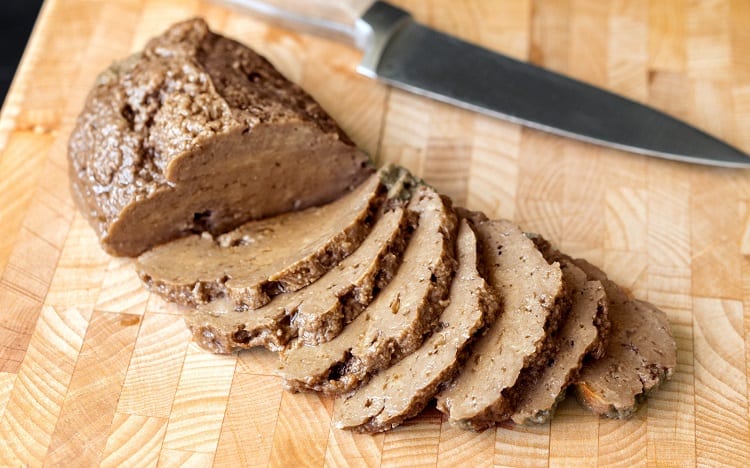
Surviving on a vegan diet alone is not sufficient for maintaining proper body function.
A vegan must use a supplement to ensure the body is not lacking essential nutrients that compromise health. The supplement can be sourced from the pharmacy while sources are present in the different food we eat. For example
- Soy protein – Soy mince and chunks are easy to prepare meals that are a fantastic meat substitute. Purchase soy balls, culets, and mince to spice up food or marinade. Soy can make vegan meatballs and burgers.
- Tofu is another popular food for a vegan. It starts by soaking the soybeans in water and mash to form tofu. And then sieve the liquid out from the fibrous constituent. The liquid is heated at low temperatures to make cheese.
- Seitan is a popular food for vegans that substitute the meat. Seitan is the wheat gluten sourced out of wheat dough. To form a meaty texture, seitan is steamed, baked, and boiled to form cutlets, sausages, and cold cuts.
Veganism for Beginners Where to Start?
There’s nothing impossible for a willing heart and more so a soul destined to fight for the plight of the animals. However, every beginning has never been easy. It’s like entering into a mysterious road with no exact vicinity of the end.
Every beginner starts with a successful story. Some watch documentaries, movies, cartoons and read such articles that convert their mindset to animals’ rights. Whatever the case, starting to become a vegan is not an easy task.
Sometimes, it’s okay to switch on and off to favorite fish until the body achieves sustainability for the vegan diet.
Follow the below simple steps to start and sustain the vegan diet.
- Preparation – settling for a vegan diet is not easy. A potential vegan should prepare their body, soul, and spirit. It’s a period of meditating and reflecting on the animal journey.
Also, preparation is the process of looking up to the pioneers. The famous individuals that embrace the vegan diet to follow their stories and appreciate the process. Also, preparation is a process of conducting extensive research to gain knowledge and understanding.
- Master the pace – slow but sure is always a trusted process, and the same applies for the vegans. The best starting point is mastering the rate. Notice that vegans do not overcome the desire for turkey and steak overnight. It’s a process that requires investment in time and resources.
A gradual transition is advisable to allow the body time to adjust. An instant pressure on the body can shock the process and lead to unwanted complications.
- Alternate the meals – a beginner overcomes by alternative the meals. A gradual process of meals starting low as the progress grows to a more vegan diet. Try less complicated recipes that alternative between milk cheese and meat. The other options to the flesh and dairy products can work excellently in suppressing the diet.
- Another critical milestone to becoming a vegan is mastering the substitutes. Learn and understand the best food substitutes for fish, eggs, and meat. There a lot of food options available for the vegan diet.
- Understand the body changes. Starting off the vegan is unique to every person. Some people face massive rejections by the body as well as family and friends. In contrast, others encounter encouragement and support. As a result, the process is different and unique to every person.
- Consult a doctor – A doctor is capable of offering accurate advice on whether the body can withstand the diet or not.
Food Alternatives
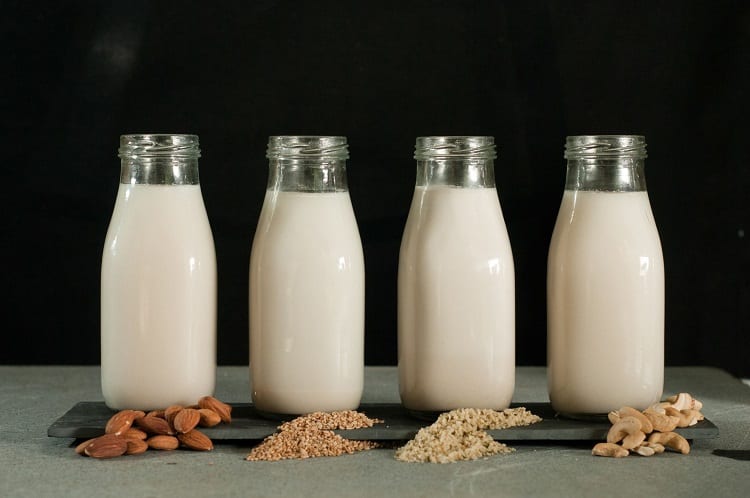
Enjoy the vegan diet by trying out the following food alternatives.
Milk substitutes
Exclusive vegans do not consume anything to do with animals, and milk is essential for dairy animals. No need to worry. You can source milk directly from the substitutes such as hemp, almond, soy, cashew, hazelnut, and oat.
The replacements offer different options for preparing the meals. For example, it’s possible to enjoy the nuts through straining, blending, and soaking.
Also, milk substitutes are essential when cooking or baking. The milk substitutes offer comprehensive options for cooking and preparing the best easy recipes for vegans.
Alternative yogurts and creams
Mainly yogurts and creams arise from animals and most especially the dairy animals. For the exclusive vegans, consuming anything to do with animals is not an option. It’s possible to maintain a vegan diet and still enjoy creams and yogurt.
Plant-based yogurts are rich in nutrients and vitamins, just like animal products.
The creams are easy to add for desserts, snacks, and smoothies. They offer an excellent option for cooking and baking too. Also, the plant-based diet is rich in probiotic bacteria that are responsible for a healthy gut.
There’s nothing to miss when it comes to plant-based yogurt and creams. The almond, soy, and coconut creams offer excellent preparation for natural-based plant yogurts and creams.
Vegan Supplements

- Supplement vitamin B12 directly sourced from the counter and take 2.8mcg when breastfeeding, 2.6mcg during pregnancy, and 2.4 mcg for the adults. It’s also possible to achieve vitamin B12 by consuming nutritional yeast, breakfast cereals, soy products, and plant kinds of milk.
- For vitamin D, source it directly from the counter and consume 20mcg for the lactating women and the elderly. 15mcg per day is suitable for adults and children. Sunlight is equally essential in providing vitamin D. With daily exposure of 15 minutes helps absorb vitamin D in the body.
- Omega-3s are essential in maintaining the body functions, and a vegan is at risk of hyperactivity disorder, cancer, and depression due to lack of the component. The excellent news that plants such as soybeans, hemp seeds, walnuts, chia seeds, and flax seeds are rich in omega 3.
- Algae oil is another rich source of omega 3, and nutritionists recommend about 300 mg of omega oil daily. It’s also possible to maximize the intake of omega -6 fatty acids by consuming sesame oils, sunflower, safflower, and corn.
- Iodine is essential in controlling the thyroid function, and lack of sufficient iodine can cause weight gain, depression, tingling of feet and hands, dry skin, and low energy levels.
How Hard Is It To Become a Vegan?
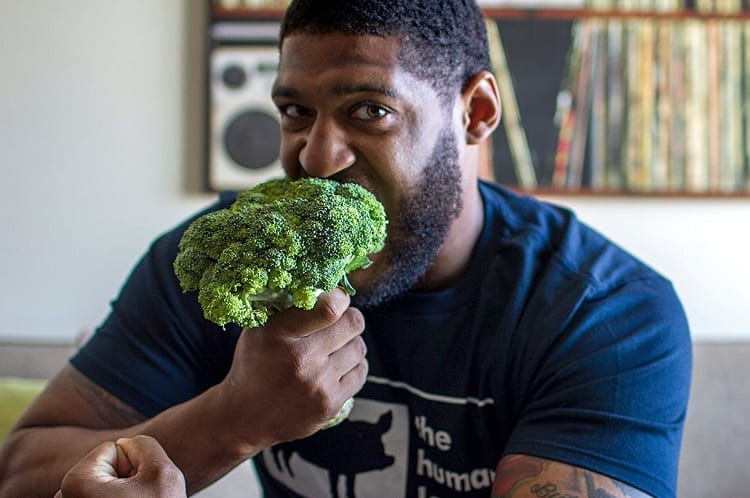
It’s not easy or too complicated to become a vegan. Start gradually and establish a vegan routine by alternating from ordinary to the vegan diet. Repeat the alternation until the body is fully prepared to support a vegan diet.
Always look for a healthy diet and essential substitutes with supplements to ensure the body is sufficient to supply all the nutrients.
Apart from an over-the-counter supplement, consuming an alternate diet of meat, fish, and dairy products provide a full supply of all the vitamins and nutrients for the body’s functions.
Veganism is not a betting process since it’s a complete diet change with considerable repercussions in the body. So, a blind approach may lead to detrimental health consequences.
Thus, research and gain all the necessary knowledge by reading, watching, and following the pioneers. Invest in high-quality recipe books for a vegan diet.
A beginner needs to completely absorb the vegan diet by identifying everything to do with vegan. Follow the movements, the social media groups, and celebrities that support the vegan diet. Shun off negative energy to establish consistency and success to becoming long term veganism.
How to Really Know If the Food You’re Eating Is Vegan?
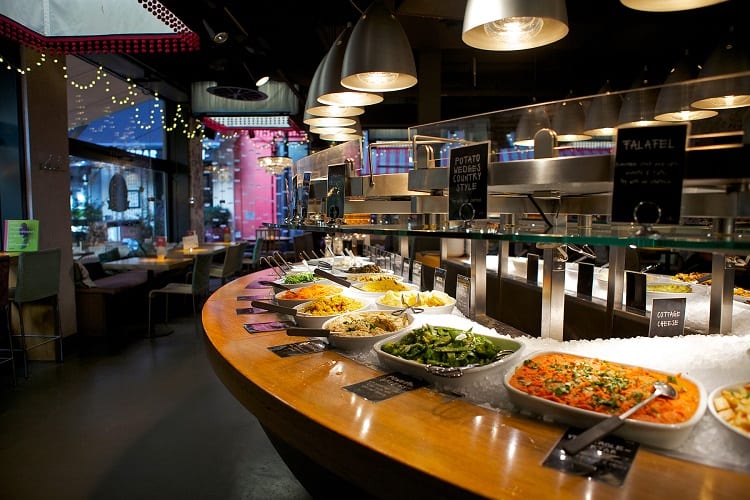
It’s possible to know whether the food you’re eating is vegan by visiting a vegan eatery or restaurant and checking on the food products before purchasing. For instance;
How to tell if a restaurant is really vegan?
You can only tell that a restaurant is vegan by researching the internet and consulting with the management about your food desires and preferences.
Again, settling for a good restaurant is about associating with the right vegan social media groups to get reviews about the best restaurants.
Finally, create a network with other vegans to have backup thoughts and options regarding the best restaurants and eateries.
How to tell if the food products you’re buying are vegan?
It’s possible to tell whether a product is vegan or not by checking the labeling and the packaging. Some products have a certified vegan logo, while others have a cruelty-free slogan, indicating that the food is entirely vegan.
Even though it’s advisable to go through the vegan list and ensure the ingredient is cruel free. Check at the slogan, the company background, and advertising to acknowledge whether the food is vegan free.
PETA and the Coalition for Consumer Information on Cosmetics (CCIC) are specific on food labeling ad packaging. Follow the products listed by the two organizations to ensure the diet is entirely vegan.
Avoid products tested on animals or containing any harsh elements. For instance, the following foods are by-products of animals, and most are manufactured together with the essential serving. They include;
- Albumen
- Whey powder
- Vitamin D3
- Shellac
- Di-and monoglycerides
- I-cysteine
- Lactose
- Gelatin
- Casein
- Carmine
- Butterfat
- Bone char
Most of the textiles and apparel contain animal products very harmful to the body. Such products include;
- Angora
- Cashmere
- Wool
- Silk
- Fur
- Leather
Personal cosmetics and care products to avoid includes;
- Tallow
- Pearls
- Musk
- Keratin
- Lanolin
- Beeswax
Common Foods That People Think Are Vegan But Are Not
There’re some foods that people think are vegan but have some substances of animal by-products. Examples of such foods are;
Wine and beer
Check out for the ingredient in beer and wine since some contain casein, a product of milk and egg white.
Others have isinglass, a product derived from fish. It’s imperative to clarify with the attendant about the beer or the wine before engaging in a non-vegan meal.
Chocolate
Chocolate is a product made out of cocoa plants, and hence it’s completely vegan.
But in most cases, chocolate manufacturers add dairy by-products such as casein and whey, which are hidden ingredient likely to destabilize the vegan free agenda.
Sugar
Sugar is entirely vegan derived from sugar beets and sugar cane. In refined and processed sugar, many manufacturers add bone char that is against the vegan movement.
Red food
Most of the red-dyed food contains dairy ingredients such as carmine sourced from insects.
So avoid candies, sodas, juices, and yogurt until confirmed for a vegan diet. The ingredient list can offer better insights on this to avoid.
How to Find the Best Vegan Restaurants and Foods?
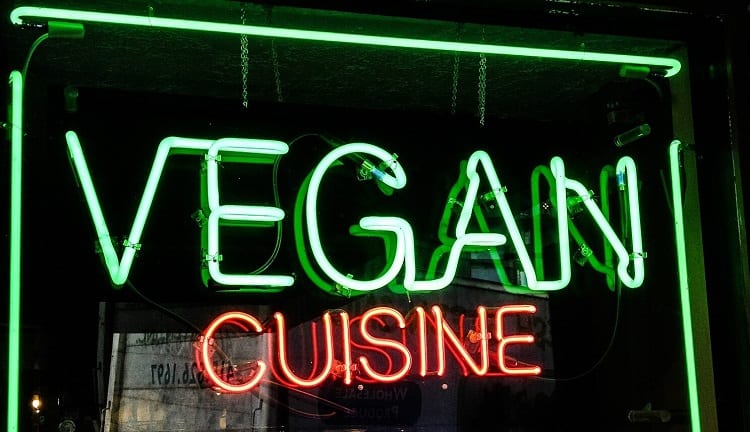
The easiest way to find a vegan hotel near you is just to Google it.
The internet offers a valuable tool for establishing a vegan-friendly restaurant within the locality or when traveling. Yelp.com is of help when it comes to vegan dining possibilities.
Should You Join Vegan Social Groups?
Yes, join the vegan social groups to associate with individuals following a similar course.
The groups are a source of motivation and contain valuable information about the best vegan dining centers and restaurants within and outside the localities. Such groups are rich in information that is specific for vegan consumers.
Veganism and Social life Avoid Being the Stereotypical Vegan
There’re many stereotypes surrounding veganism. It depends on what influenced you to choose the vegan diet. The following is a list of common stereotypes and how to avoid them.
- Vegans are thin – according to studies, vegans are more delicate than other populations of meat lovers. The significant difference is because of the food content for the vegan and the meat lover’s diet. Bust this stereotype by investing in supplements and food with equal strength like meat, fish, and dairy products.
- Vegans are protesters – some argue that vegans are protesters who walk around with leaflets and postures to influence others. Bust the stereotype by acknowledging a vegan diet out of a personal decision or concern against animal cruelty. Value the decision for a vegan diet by appreciating life and upholding the animals’ rights just like human beings.
- Some vegans hide under animal protections but consume the diet out of health concerns: whichever, trust the process and the journey to embracing the vegan diet. Shun any negativity by reading, watching, and doing everything vegan. Avoid individuals, friends, and family that criticize and demoralize the decisions and reasons for becoming a vegan.
- Vegans are hippies that are overly concerned about the environment. Fight this stereotype by understanding that for many people, veganism is a way of life. There’re varied reasons why individuals chose the vegan diet, and other professionals have a deep interest in protecting the environment.
- The vegan diet is not delicious. Bust this stereotype by investing in recipes and cooking time to embracing well-prepared meals.
Bottom Line
The vegan diet is a walk of life for many people, and everyone settles for the diet basing on varied reasons. Whether for sustainability reasons, environmental consciousness, animal advocacy, health, or political stance, a vegan diet is good and healthy.
Enjoy veganism by preparing meals that are satisfying and delicious. Shun the negativity of consuming a plant-based diet by always supplementing with vitamins to support the body’s functions. And invest in right-minded individuals that love a vegan diet.
Veganism is a gradual process that may take years to establish a long-lasting habit. Therefore, don’t be condemned to simple mistakes that arise from body reaction to lack of food and nutrients.
Start by alternating the vegan diet with the animal diet until the body is fully accustomed to eating fruits and vegetables. Follow guidelines by a nutritionist depending on your health status.

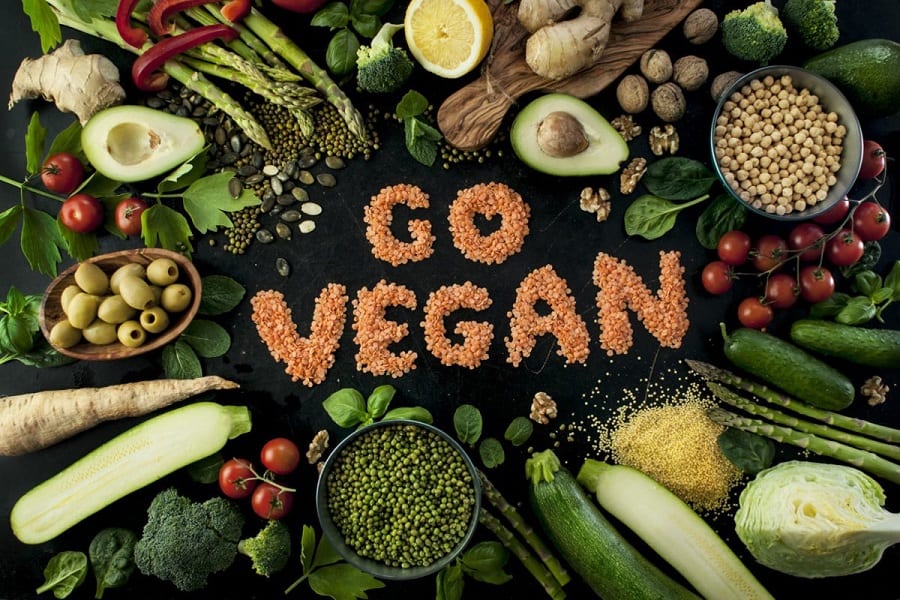

Thanks for your blog, nice to read. Do not stop.
Thank you, Mark. We will do our best.